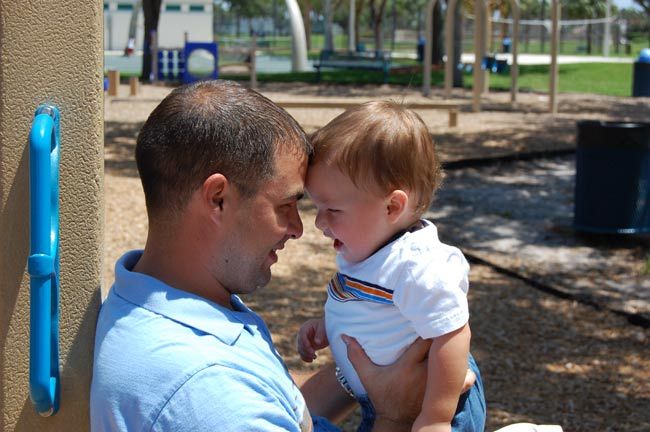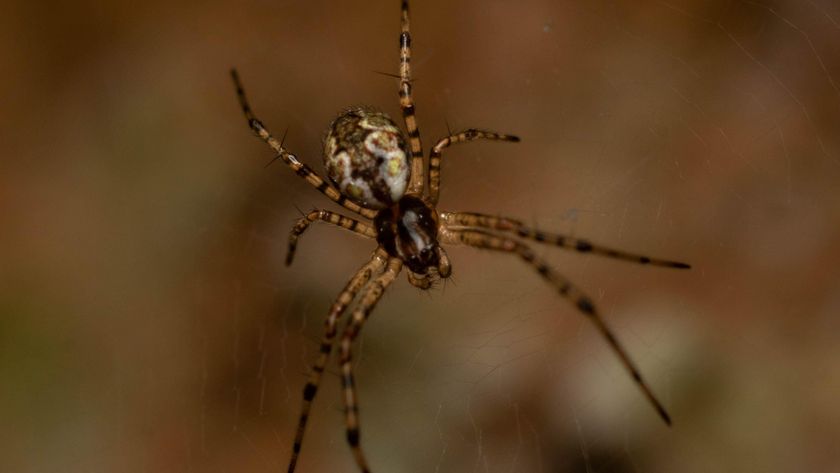Good Partners Make Good Parents, Study Finds

If your partner is sensitive, cooperative and supportive, congratulations: He or she will probably be a good parent.
The same skills that make people successful romantic partners also make them good parents, a new study finds. The research shows that people who are insecure in their romantic relationships are more likely to use less-than-ideal parenting styles.
"If you can do responsive care-giving, it seems that you can do it across different relationships," study researcher Abigail Millings of the University of Bristol said in a statement. Responsive care-giving includes being cooperative without being bossy, noticing your romantic partner's needs and supporting them.
Attachment and anxiety
Millings and her colleagues focused on attachment, a psychological concept that describes people's relationships to one another. Someone with attachment avoidance, for example, puts up barriers and denies the need to be close to their partner. Someone with attachment anxiety, on the other hand, would be clingy and insecure in their relationship, constantly sure that they'll be abandoned.
The ideal model is a secure attachment, which is low in both anxiety and avoidance. Securely attached people are free to be independent in their relationships, but also feel sure the other person will be there for them.
Because families are dynamic mixes of relationships, Millings and her colleagues wanted to know if parents' attachment to each other would affect their parenting styles with their children. Previous research has shown that attachment avoidance and anxiety are linked with more fear about parenting, as well as parenting struggles. An anxiously attached mom or dad might have trouble letting their child explore the world independently, for example. An avoidant parent might come across as cold or distant.
Sign up for the Live Science daily newsletter now
Get the world’s most fascinating discoveries delivered straight to your inbox.
The researchers asked 125 English couples with kids ages 7 to 8 to fill out surveys about their romantic attachment to their partners, their romantic care-giving and their parenting styles. Psychologists break parenting styles into three broad categories: Authoritarian, which is marked by an old-school "spare the rod and spoil the child" attitude in which strict discipline is best way to raise a kid; permissive, which sets few boundaries; and authoritative, which involves setting boundaries in a warm and loving environment. [10 Scientific Tips for Raising Happy Kids]
Partnering and parenting
Authoritative parenting is considered ideal, because it has been linked with better mental health and more success for kids. And sure enough, the study found that when parents were more avoidant or anxious in their own romantic relationships, they were less likely to deploy authoritative parenting.
The level of romantic care-giving in the parental relationship drove the link between romance and parenting, the researchers reported online Dec. 6 in the journal Personality and Social Psychology Bulletin. Avoidant and anxious parents took less care of each other, showing less cooperation and less sensitivity to each other's moods and needs. This lack of care-giving, in turn, was linked to a greater propensity for authoritarian or permissive parenting, and lower likelihood of the ideal authoritative style.
"It might be the case that practicing being sensitive and responsive — for example, by really listening and by really thinking about the other person's perspective — to our partners will also help us to improve these skills with our kids," Millings said in the statement. "But we need to do more research to see whether the association can actually be used in this way."
The researchers next plan to explore how care-giving and parenting relate in families without a two-parent structure. Single parents can, after all, have great relationships with their kids without having a spouse. But if improving one type of relationship does spill over and improve other types of relationships, the findings could be important in designing counseling or self-help treatments, the researchers said.
Follow Stephanie Pappas on Twitter @sipappas or LiveScience @livescience. We're also on Facebook & Google+.

Stephanie Pappas is a contributing writer for Live Science, covering topics ranging from geoscience to archaeology to the human brain and behavior. She was previously a senior writer for Live Science but is now a freelancer based in Denver, Colorado, and regularly contributes to Scientific American and The Monitor, the monthly magazine of the American Psychological Association. Stephanie received a bachelor's degree in psychology from the University of South Carolina and a graduate certificate in science communication from the University of California, Santa Cruz.










